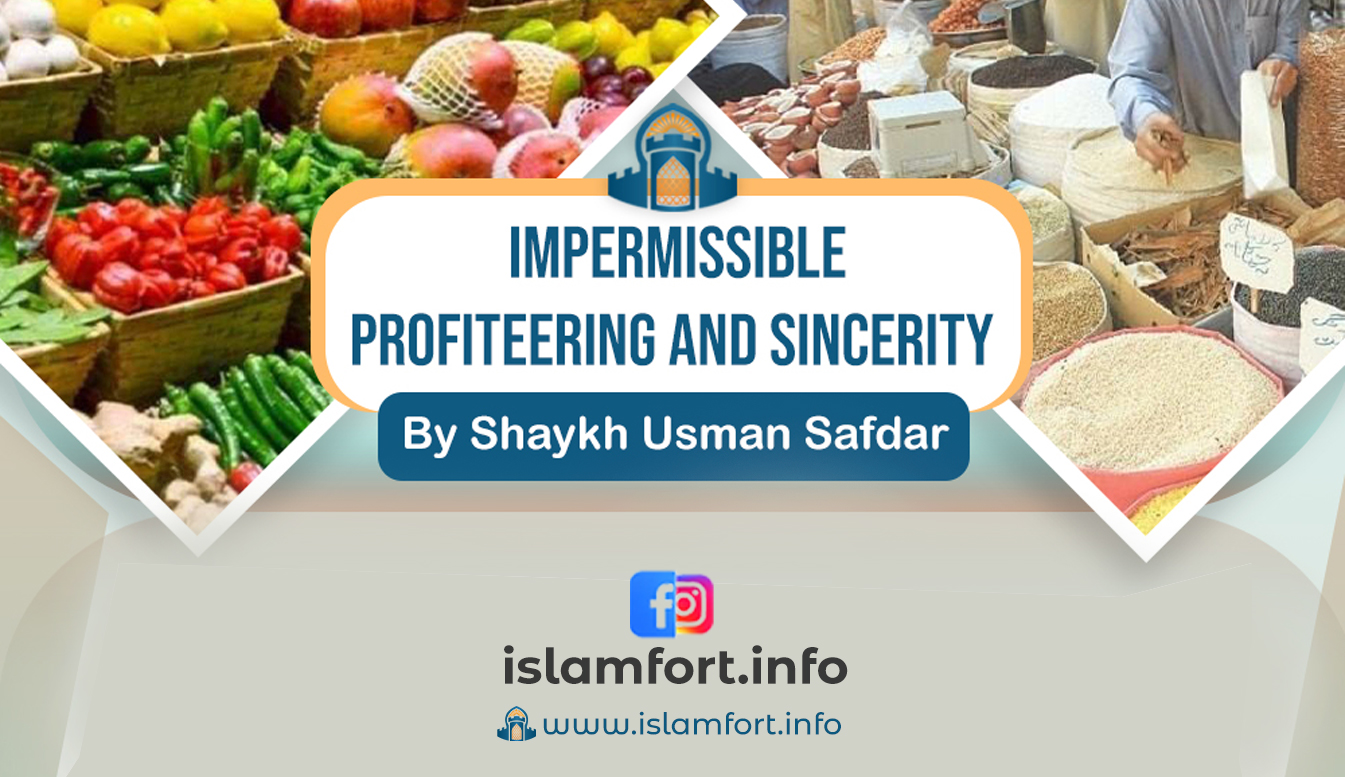The Islamic Jurisprudence (Shar’iah) has not prescribed any kind of set allocation nor any specific benchmark regarding earning of profits. If a person buys an item for Rs. 10 and then the price of that item increases to Rs. 100 in the market, then that person can also sell the same item for Rs. 100 or more. There is no such restriction in Shariah that a vendor cannot sell for Rs. 100 or Rs. 150, which is bought for Rs. 10. On the contrary, he is permitted to sell his goods at his rates. But we have been taught some etiquettes of trade from Prophet Muhammad ﷺ. Jarir bin Abdullah (رَضِيَ ٱللَّٰهُ عَنْهُ) said: One of the few things that I pledged allegiance to the Prophet ﷺ was:
النصح لکل مسلم
Be sincere and true to every Muslim.
[Sahih Bukhari: 57]
This has been implemented with an example set by Jarir Bin Abdullah (رَضِيَ ٱللَّٰهُ عَنْهُ) when he wanted to buy a horse and the owner of that horse set the price as 300 Dirhams. Jarir bin Abdullah (رَضِيَ ٱللَّٰهُ عَنْهُ) should have bought the horse at the given price, but he realized after assessing the horse, that the real price of that horse is actually much more than what was demanded by the owner. So, Jarir bin Abdullah (رَضِيَ ٱللَّٰهُ عَنْهُ) said to the owner, “You are not aware of the real value of this horse. The true worth of this horse it is 500 Dirhams. The deal was not concluded even then. Jarir bin Abdullah (رَضِيَ ٱللَّٰهُ عَنْهُ), then rode the horse and said, “This horse is not even 500 Dirhams, rather it is worth 800 Dirhams. So, he finally bought it for 800 Dirhams.
[Al-Mu’jam al-Kabir by Tabrani: 2395]
This is how an example of sincerity and goodwill with a fellow Muslim has been set; The goodwill on which he pledged allegiance to Prophet ﷺ.
Unfair Profiteering (Example One): Taking Advantage of a Crisis
If a trader buys a commodity for commercial purposes, then suddenly the demand for it increases due to an epidemic or disaster, then if he continued to make that commodity available to the people at the price that was initially set by him, it would be a means of reward for him. Such as these days we are faced with the pandemic situation of the Corona Virus. We have seen slump of supplies of both wheat as well as sugar. During this time, there was a shortage of masks causing the prices to rise. There has been a crisis situation for many medicines where again the prices hiked up tremendously. They were sold at exorbitantly high rates. So it is not a matter of benevolence to increase the prices and take advantage of people’s needs at such a time.
Unfair profiteering (Example Two): Stocking
Unfair profiteering also includes a form where a person stocks an item in such large quantities to cause its shortage in the market. Later on, he supplies the very same goods and sells it at a very high price. Such stocking is categorically impermissible.
However, if someone stocks the items for the only means of trade but rates rise up inadvertently then there is no prohibition upon him to sell it at the going market rate. Having said that, we as being Muslims are instructed to practice compassion. Surely, abundance of wealth is not as valuable as the barakah (goodness) the trade brings for the seller.
Philosophy of Abundance in Wealth:
A trader purchases an item for Rs. 10 and sells it for Rs. 100. Yet, Allah (عَزَّوَجَلَّ) provides him with no blessing or no means for his business to grow through the money he earns. On the other hand, another trader purchases and an item of Rs. 10 but sells it for Rs. 20. For the latter Allah (عَزَّوَجَلَّ) puts blessings and goodness in his little profit and causes his business to grow. This is the very blessing that has been described in Qur’an:
فَانتَشِرُوا فِي الْأَرْضِ وَابْتَغُوا مِن فَضْلِ اللَّـهِ
Disperse throughout the land and seek the bounty of Allah (عَزَّوَجَلَّ)
[Surah Al-Jumu’ah: 10]
Allah (عَزَّوَجَلَّ)’s bounty is not to be gauged by the amount of profit earned in a business. Rather, it is the understanding of what blessings the profit brings in whether little or more. We pray to Allah (عَزَّوَجَلَّ) to protect us from unfair and illicit profiteering and trade that is forbidden. We pray that He gives us the tawfique to be able to practice fair trade which is halal and a means of bringing goodness and contentment in our lives. (Aameen)











